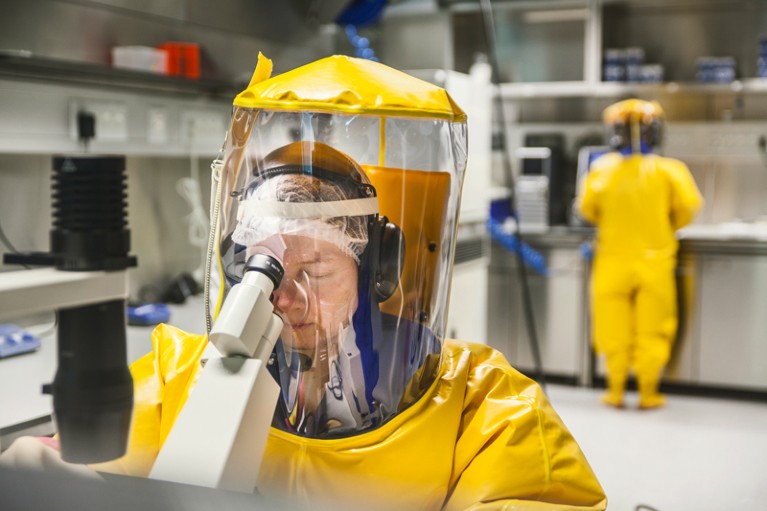Hello Nature readers, welcome to your essential daily round-up of science news.

The US government will evaluate whether advances in gene editing have raised the risk of an engineered bioweapon.Credit: Anna Schroll/Fotogloria/UIG/Getty
Lab accidents included in US biodefence strategy
The US government has revised its plans for responding to biological threats. The new strategy expands beyond deliberate bioterror threats to include naturally occurring outbreaks and infectious diseases that escape the lab accidentally. The plan will also evaluate scientific advances that could make it easier for terrorists to engineer dangerous pathogens. This is the first coordinated multi-agency strategy — previously, each agency just had its own plan.
Nature | 3 min read
Visa woes hit African and Asian researchers
Researchers from Africa and Asia are three to four times more likely to experience visa problems when travelling for work than are Europeans and North Americans. A survey of 2,465 researchers from 109 countries indicated that lengthy processing times, complex forms, high costs and confusing rules are all hindering international collaboration.
Nature | 3 min read
China dominates research rising stars
Nine out of the top ten institutions ranked as ‘rising stars’ by Nature Index are in China. (The tenth, ranked number 7, is the Indian Institutes of Technology.) The list ranks institutions by the increase in their contribution to 82 high-quality journals. Austria, Norway, Brazil, Iran and the Czech Republic round out the countries that have experienced the highest increases.
Times Higher Education | 6 min read
Reference: Nature Index 2018 Rising Stars
FEATURES & OPINION
Undergraduates learn research at its worst
The research dissertation students do in their final year is almost a bootcamp for instilling bad habits, argues psychologist Katherine Button. Limited time and resources, small sample sizes, and the potential for P-hacking are a recipe for irreproducible results. A system that allows undergraduates to collaborate across institutes gives students the opportunity to pool their efforts in data collection and reach sample sizes sufficient for meaningful analyses.
Nature | 5 min read
Filthy air is a global disgrace
Nine out of ten people live in places where outdoor air pollution exceeds guidelines set by the World Health Organization, and more than four million people die each year from exposure to toxic air. Science can help with better models for monitoring and exposure, argues a Nature editorial. The results must then be brought to bear when setting policies on climate, transport, enterprise, trade and innovation.
Nature | 4 min read
A giant crawling termite brain
“What is ‘one’ termite?” asks journalist Lisa Margonelli. Depending on the species, they can’t eat without workers, survive without soldiers or reproduce without queens. Margonelli explores the image of the termite mound as a body, and the termites as neurons that make up its single giant brain.
The Guardian | 20 min read
Behold, the most beautiful slugs in the world
Nudibranchs, or sea slugs, are some of the ocean’s most stunning and colourful inhabitants. Hakai presents a gallery of the invertebrate beauties as it explores the complex, dangerous environment that has influenced the creatures’ remarkable forms.
Hakai | 9 min read
